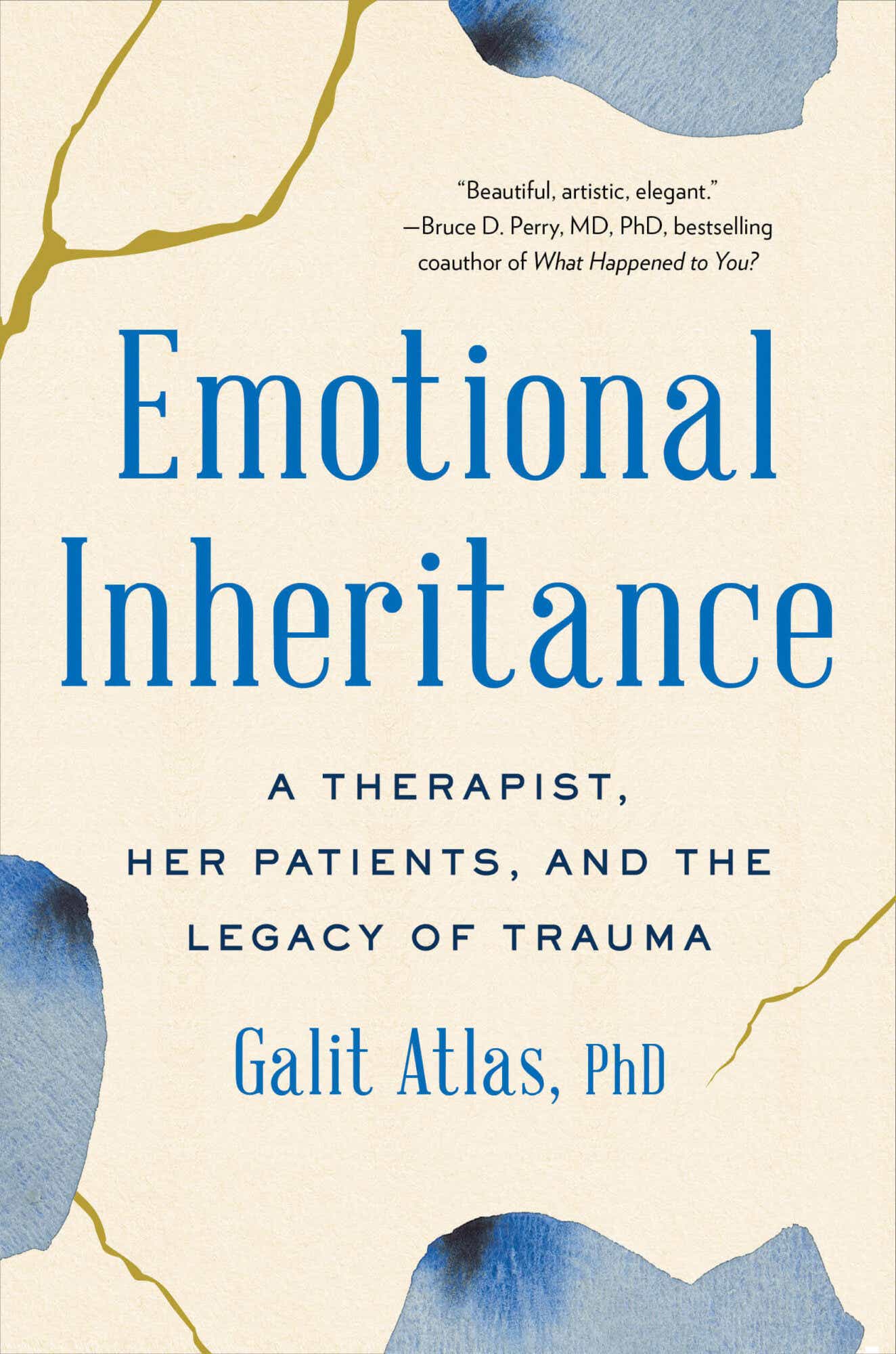We all know that our parents and grandparents passed on traits to us like hair or height, or even a talent for music or sports. But have you ever wondered if your ancestors’ life experiences have impacted your own psychology? While it might sound like a stretch, it’s possible — especially when it comes to trauma.
It's easy to blame ourselves for our bad habits, recurring emotional issues, or challenges, but they may be a product of trauma we’ve inherited from family members. In her book, Emotional Inheritance: A Therapist, Her Patients and The Legacy of Trauma, psychoanalyst Galit Atlas, Ph.D., explains the phenomena of "generational trauma." We spoke to Dr. Atlas about how emotions and experiences can be transmitted through the decades.
KCM: First off, explain for us how trauma is passed down between generations.
GA: In the book, I present research on intergenerational transmission of trauma and the ways in which, through the parent-child bond, children know their parents from “inside.” In our clinical work, clinicians see how traumatic experiences invade the psyche of the next generation and show themselves often in surprising and unpredictable ways. I describe how those who raised us live inside us; we experience their emotional pain, we dream their memories, we know what wasn't explicitly conveyed to us. And these things shape our lives.
How can we identify inherited trauma in ourselves and in our loved ones?
The first step of identifying it is learning what emotional inheritance is, and how it works in families. The “aha” moment usually happens very quickly, right after people become aware of this emotional dynamic. The main reaction I’ve gotten so far from people who read Emotional Inheritance is that reading it helped them identify their inherited trauma and lead them to see things that have been there all along — to find answers or, just as important, to form the right questions. It might sound surprising but so many of us either don’t fully know our family history, or never thought about the link between that history and our current struggles.
The book is a series of patient profiles. How did you decide on the theme of generational trauma as the lynchpin for their stories?
As a psychoanalyst, I believe that in every therapy session, we sit not only with the patient themself but with at least the two generations who came before — their parents and grandparents. The stories that I present are of people who came to therapy with what psychologists call a “presented problem," which is the reason that brings them to therapy. That presented problem could be a life event: A breakup, a death, an affair, a dilemma about a relationship, or a conflict about having children, etc. Other people come because they have symptoms like nightmares, anxiety, obsession... Underneath that, we all want to know ourselves — even though we’re also afraid of what we might find out.
Some of the stories you detail are pretty incredible — a descendent of a Holocaust victim who had been buried alive having claustrophobic nightmares, a grandson envisioning his grandfather’s closeted sexuality, both without prior knowledge of the circumstances. What would you say to skeptics who may not believe that trauma can truly be inherited?
That's a good question, because while I present the research that shows that trauma can leave a chemical mark on a person’s genes, which are then passed down to the next generation, what we know about our ancestors is communicated in ways that are based on nurture as opposed to nature. Children are tuned into their parents and register not only what the parents say, but also what they don’t say directly, or what they hide. Research on parent-infant communication indicates that babies respond to their parent's implicit signals from birth and “read” their minds.
Many parents might inadvertently perpetuate cycles of trauma. What are some of the dos and don'ts for well-intentioned parents?
As a parent myself, and working with many parents, I can tell you that the question of how to protect our children and break the intergenerational cycle is a pressing one. We don’t want to inflict pain on our children and we want to protect them from our own pain. I believe that the first step is doing our own emotional work, which includes processing our history and our emotions. We tend to pass down those experiences that aren’t processed or thought-through, and the experiences live inside us in their raw form, like ghosts. While our journeys to healing vary, each starts with the decision to search — to open the door, and, rather than turn away from the pain of the past, walk toward it. The unexamined life repeats itself and reverberates through the generations, and doing the emotional work starts with us.
The world has experienced so much collective trauma over the last few years. What would this book have looked like three years ago?
In the last two years, the world has been faced with one of the most profound mental health crises that we've ever known. What we clinicians see in our practices is not only the enormous stress and trauma of the pandemic, but in addition, we're aware of the clear link between the current crisis and a rising wave of pre-existing trauma. Personal, intergenerational, and racial traumas came to the surface in full force. In fact, the pandemic has awakened the ghosts of our history and people started looking for answers.
I began writing this book before the pandemic. It started as a very personal project, written after my life partner died from cancer, so it's filled with my own private grief and trauma. During the pandemic, I observed the new ways my patients started remembering traumas from their past and from their parents’ past. The grief became universal, and the very private experience of writing this book then became a moving experience of sharing it and helping others.










